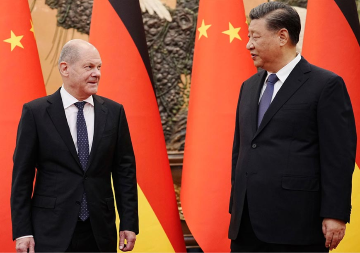Experts at the event opined that it is a win-win situation for India and Bangladesh to have a functional river, rail and road network.

India and Bangladesh still have greater potential for further strengthening their economic, environmental, power and transport ties. This was the sentiment expressed by a delegation of the Members of Parliament (MPs) from Bangladesh during a roundtable hosted by Observer Research Foundation on August 5, 2016. The Bangladesh MPs delegation was in India on a goodwill visit.
The meeting discussed at length about the opportunities for new initiatives for strengthening economic and security cooperation between India and Bangladesh that would contribute in establishing peace and prosperity of the region.
At the roundtable moderated by Ashok Malik, Distinguished Fellow, ORF, delegation members appreciated the progress achieved in the relations between India and Bangladesh. They recognised that frequent governmental engagements have played a positive role in strengthening the ties. The MPs also observed that contentious issues like land boundary agreement, maritime border settlement between Bangladesh, India and Myanmar have been resolved with the efforts of the Indian government.
The MPS informed that the Bangladesh government has given transit rights to India for accessing the seven sisters. Also, the members opined that it is a win-win situation for India-Bangladesh to have a functional river, rail and road network. The bus service connecting Kolkata-Dhaka-Agartala was considered a major landmark.
Recognising terrorism as a common challenge facing India and Bangladesh, the incident of terror attack in Dhaka’s Gulshan was discussed in the meeting. Concerns were raised regarding the participation of the well-off section of the Bangladeshi society in the act of terrorism. Endorsing the concerns, they also expressed their surprise about the motivation for the young educated youth to join terrorism. However, it was informed that the government in Bangladesh is taking steps to understand the matter in depth. The issue of the Bangladeshi Home Minister abstaining from participation in the SAARC summit also came up for discussion. The MPs said Bangladesh action was to show its disagreements with the Pakistani government which had condemned Bangladesh for executing war criminals.
Concerns were also raised on the attacks on minorities. The visiting delegation assured that steps were being taken in improving the situation as also it has ramifications for Bangladesh’s economy which is being affected by the losses suffered by the garment industry.
Discussing the socio-political situation prevailing in Bangladesh, the issue of Jamaat-e-Islami and its influence in the society also came up. Jamaat runs schools and banks, receives CSR funds with zero accountability and other resources. Its such influence helps to impart its dangerous ideology to the well-off sections of the society. It was observed most of the leaders of the Jamaat are facing conviction in the War Crimes Tribunal for crimes committed during 1971 war. Many of its leaders were either executed or are waiting in row. This shall reduce the party’s influence to a great extent.
The discussion ended with some suggestions on how India can help fight terrorism and insurgency in Bangladesh. Some of the measures suggested were — strengthening border security that would prevent terrorists from Bangladesh trespassing into India; giving emphasis to greater coordination and communication between the intelligence agencies of the two countries; and new initiatives on power, environment and connectivity between the two neighbours.
The event was attended by former diplomats, academicians, policy analysts.
This report is prepared by Ishita Lohani, Research Intern, Observer Research Foundation, New Delhi.
The views expressed above belong to the author(s). ORF research and analyses now available on Telegram! Click here to access our curated content — blogs, longforms and interviews.




 PREV
PREV

